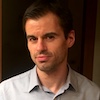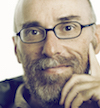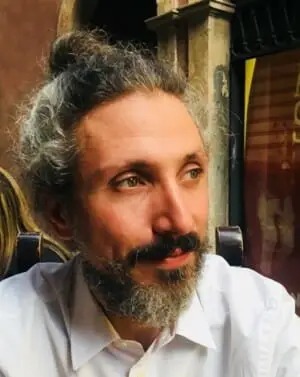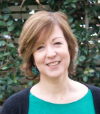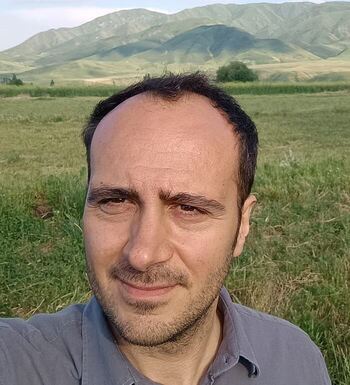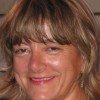Studying at the University of Verona
Here you can find information on the organisational aspects of the Programme, lecture timetables, learning activities and useful contact details for your time at the University, from enrolment to graduation.
Academic calendar
The academic calendar shows the deadlines and scheduled events that are relevant to students, teaching and technical-administrative staff of the University. Public holidays and University closures are also indicated. The academic year normally begins on 1 October each year and ends on 30 September of the following year.
Course calendar
The Academic Calendar sets out the degree programme lecture and exam timetables, as well as the relevant university closure dates..
| Period | From | To |
|---|---|---|
| Sem. 1A | Sep 24, 2018 | Nov 10, 2018 |
| Sem. 1B | Nov 19, 2018 | Jan 12, 2019 |
| Sem. 2A | Feb 18, 2019 | Mar 30, 2019 |
| Sem. 2B | Apr 8, 2019 | Jun 1, 2019 |
| Session | From | To |
|---|---|---|
| Sessione Invernale | Jan 14, 2019 | Feb 16, 2019 |
| Sessione Estiva (Gli esami sono sospesi durante la Sessione di laurea) | Jun 3, 2019 | Jul 27, 2019 |
| Sessione Autunnale | Aug 26, 2019 | Sep 21, 2019 |
| Session | From | To |
|---|---|---|
| Sessione Estiva | Jul 8, 2019 | Jul 13, 2019 |
| Sessione Autunnale | Nov 4, 2019 | Nov 9, 2019 |
| Sessione Invernale | Mar 30, 2020 | Apr 4, 2020 |
| Period | From | To |
|---|---|---|
| Festa di Ognissanti | Nov 1, 2018 | Nov 1, 2018 |
| Festa dell’Immacolata | Dec 8, 2018 | Dec 8, 2018 |
| Vacanze di Natale | Dec 22, 2018 | Jan 6, 2019 |
| Vacanze di Pasqua | Apr 19, 2019 | Apr 23, 2019 |
| Festa della liberazione | Apr 25, 2019 | Apr 25, 2019 |
| Festa del lavoro | May 1, 2019 | May 1, 2019 |
| Festa del Santo Patrono - S. Zeno | May 21, 2019 | May 21, 2019 |
| Festa della Repubblica | Jun 2, 2019 | Jun 2, 2019 |
| Vacanze Estive | Aug 12, 2019 | Aug 17, 2019 |
Exam calendar
Exam dates and rounds are managed by the relevant Humanistic Studies Teaching and Student Services Unit.
To view all the exam sessions available, please use the Exam dashboard on ESSE3.
If you forgot your login details or have problems logging in, please contact the relevant IT HelpDesk, or check the login details recovery web page.
Should you have any doubts or questions, please check the Enrollment FAQs
Academic staff
 francesco.bianchi@univr.it
francesco.bianchi@univr.it
 bonifacio@teologiaverona.it
bonifacio@teologiaverona.it
 evita.calabrese@univr.it
evita.calabrese@univr.it
 andrea.cavalletti@univr.it
andrea.cavalletti@univr.it
 francesco.lupi@univr.it
francesco.lupi@univr.it

Mastrocinque Attilio
 attilio.mastrocinque@univr.it
attilio.mastrocinque@univr.it
 +39 045802 8386
+39 045802 8386
 linda.napolitano@univr.it
linda.napolitano@univr.it
 pieralberto.porcedducilione@univr.it; pierre_pordd@yahoo.it
pieralberto.porcedducilione@univr.it; pierre_pordd@yahoo.it
 045 8028732
045 8028732
 nicola.turrini@univr.it
nicola.turrini@univr.it
 lucia.vantini@univr.it
lucia.vantini@univr.it
 mariarenata.zanchin@univr.it
mariarenata.zanchin@univr.it
Study Plan
The Study Plan includes all modules, teaching and learning activities that each student will need to undertake during their time at the University.
Please select your Study Plan based on your enrollment year.
1° Year
| Modules | Credits | TAF | SSD |
|---|
Other activities2° Year activated in the A.Y. 2019/2020
| Modules | Credits | TAF | SSD |
|---|
1 module to be chosen among the following1 module to be chosen among the following3 modules to be chosen among the following3° Year activated in the A.Y. 2020/2021
| Modules | Credits | TAF | SSD |
|---|
3 modules to be chosen among the following1 module to be chosen among the following| Modules | Credits | TAF | SSD |
|---|
Other activities| Modules | Credits | TAF | SSD |
|---|
1 module to be chosen among the following1 module to be chosen among the following3 modules to be chosen among the following| Modules | Credits | TAF | SSD |
|---|
3 modules to be chosen among the following1 module to be chosen among the following| Modules | Credits | TAF | SSD |
|---|
2 modules to be chosen among the following3 modules to be chosen among the followingLegend | Type of training activity (TTA)
TAF (Type of Educational Activity) All courses and activities are classified into different types of educational activities, indicated by a letter.
History of Contemporary Philosophy (2020/2021)
Teaching code
4S00805
Teacher
Coordinator
Credits
6
Language
Italian
Scientific Disciplinary Sector (SSD)
M-FIL/06 - HISTORY OF PHILOSOPHY
Period
Sem. 2B dal Apr 14, 2021 al May 29, 2021.
Learning outcomes
The course shows the main lines and currents of contemporary philosophy. The most general study is accompanied by the appropriate insights of the major figures of contemporary thought, also through the analysis of one or more of their fundamental works. At the end of the course, students will deepen their knowledge and comprehension of Western philosophical tradition and its main conceptual lines by acquiring a thorough knowledge of the authors and texts analyzed in the course. They will also develop their capacity to communicate philosophical contents to specialists and non-specialists alike, and the capacity to continue their studies at a MA level.
Program
The course focuses on the experience of rebirth, according to the most important philosophical paths.
The foreseen steps:
1. Introduction to the topic through narration of rebirths and transformations of contemporary images of life.
2. An in depth discussion of the most important Twentieth-century philosophical perspectives on rebirth, with specific attention to affective Phenomenology, Psychoanalysis of the unconscious body, messianic Philosophy and political Philosophy.
3. Analysis of the connections between the singular rebirths and the transformations in the relationships within the community, with special regards to the relationship among men and women, but also among the victims of the history and the world accomplice of their evil.
Mandatory books:
Lucia Vantini, Il segreto dell'alba. Storie e parole di rinascita, Nerbini 2020;
Wanda Tommasi, Le parole per scriverlo. La parola e la ferita, Mimesis 2020.
Attending students: one extra book among the ones in bibliography.
Non-attending students: two extra books among the ones in bibliography.
| Author | Title | Publishing house | Year | ISBN | Notes |
|---|---|---|---|---|---|
| Carl Gustav Jung | Anima e morte e Sul rinascere | Bollati Boringhieri | 2019 | 8833902364 | |
| María Zambrano | Dell'aurora | Marietti | 2020 | 8821112164 | |
| Max Scheler | Il pentimento | Castelvecchi | 2014 | 9788868261528 | |
| Lucia Vantini | Il segreto dell'alba | Nerbini | 2020 | 978-88-6434-388-4 | |
| Søren Kierkegaard | La ripresa | SE | 2018 | 8867233465 | |
| Julia Kristeva | L’avvenire di una rivolta | Il nuovo melangolo | 2013 | 8870188936 | |
| Wanda Tommasi | Le parole per scriverlo. La parola e la ferita | Mimesis | 2020 | 8857569628 | |
| Edith Stein | Psicologia e scienze dello Spirito | Città Nuova | 1999 | 9788831172967 | |
| Arendt, Hannah | Sulla rivoluzione | Einaudi | 2009 | 9788806200305 | |
| Walther Benjamin | Tesi di filosofia della storia | Mimesis | 2012 | 8857509600 | |
| François Jullien | Una seconda vita. Come cominciare a esistere davvero | Feltrinelli | 2017 | 8807492211 |
Examination Methods
Students may choose between two types of exam: an oral examination (in presence or on-line, by previous agreement with the teacher) on all the contents of the course; otherwise, students can write an essay (max 15000 characters), on one of the topics discussed. The essay will receive a partial evaluation, which will weigh 40% on the final mark (expressed in thirtieths).
Type D and Type F activities
Modules not yet included
Career prospects
Module/Programme news
News for students
There you will find information, resources and services useful during your time at the University (Student’s exam record, your study plan on ESSE3, Distance Learning courses, university email account, office forms, administrative procedures, etc.). You can log into MyUnivr with your GIA login details: only in this way will you be able to receive notification of all the notices from your teachers and your secretariat via email and also via the Univr app.
Student mentoring
Linguistic training CLA
Gestione carriere
Practical information for students
Documents
| Title | Info File |
|---|---|
|
|
pdf, it, 325 KB, 16/07/24 |
|
|
pdf, it, 212 KB, 02/05/23 |
|
|
pdf, it, 131 KB, 02/05/23 |
Graduation
Documents
| Title | Info File |
|---|---|
|
|
pdf, it, 109 KB, 12/07/24 |
|
|
pdf, it, 112 KB, 14/05/24 |












